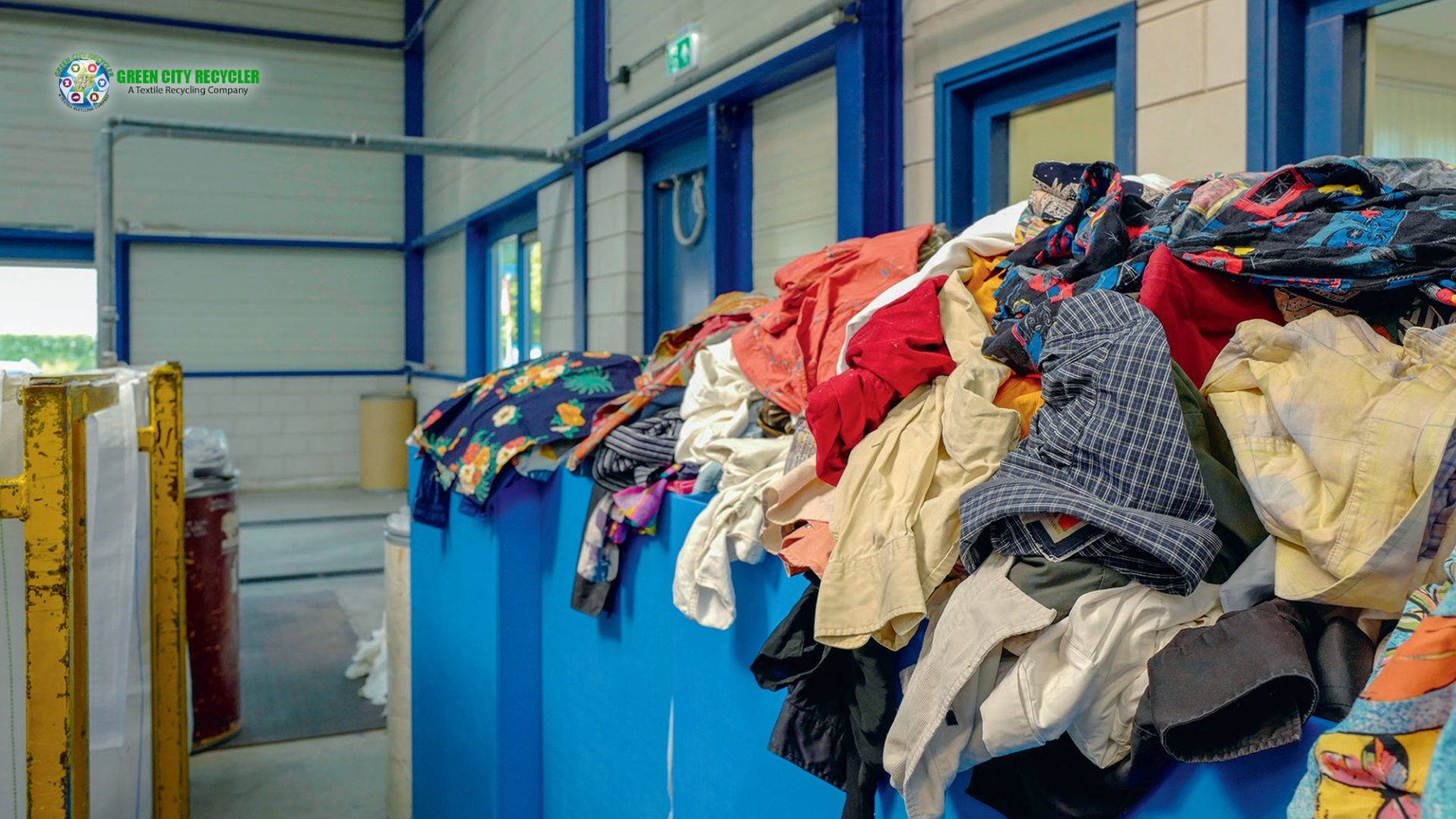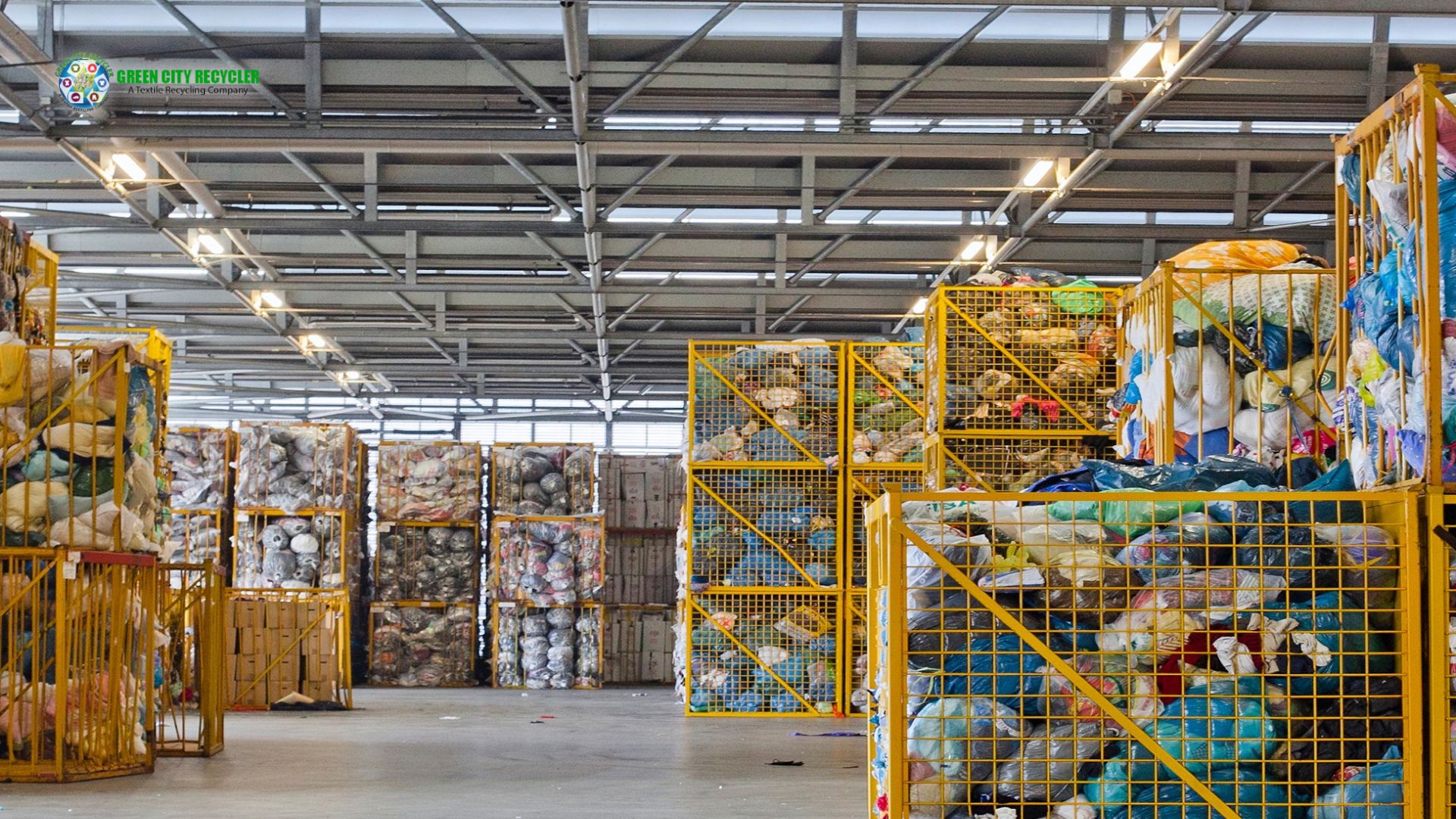Many people question whether Can clothes be recycled in the area of sustainability which is growing in relevance nowadays. However, the quick reply is indeed yes. There are several ways to recycle clothes, thereby helping to lower waste and preserve the surroundings. We shall discuss how clothes recycling operates, why it is vital, and what you can do to help on this site.
Why Should We Sort Clothing?
Millions of tons of garments wind up in landfills annually. Fast fashion, which generates instantly affordable clothing, has exacerbated this issue. Many buy clothes, wear them a few times, then toss them away. Waste and pollution abound as a result.
Recycling garments allows us to:
- Cut landfill waste.
- Save cotton and water, two natural resources.
- Less pollution resulting from textile manufacture
- Don used clothing to help others in need.
- Make fresh goods out of already-owned materials.
- Cut the energy used in creating new fabrics.
Can clothes be recycled? How you can do it?
Clothes can be recycled in numerous ways, and every approach offers advantages. However, the most often occurring choices are listed here:
1. Giving
Among the easiest ways to recycle clothes is by donating them. Also, consider donating your still-looking decent clothes to charities, thrift stores, or shelters. Since many businesses contribute gently worn clothing to people in need. Donating clothing helps to lower waste and extends their lifetime.
2. Upcycling and Reuse
You may get creative and discover fresh uses for clothing rather than discarding it. Here are some concepts:
- Make cleaning rags from old T-shirts.
- Make shorts out of cut jeans.
- For quilting or crafts, use fabric leftovers.
- Make pet beds from used clothing.
- Create a chic tote bag from an extra-large shirt.
- Upcycling offers your garments second life and helps to cut waste. This will help you save money on new house goods as well.
3.Exchange of Clothing
One enjoyable approach to updating your wardrobe without shopping for new clothes is a clothing swap. One can set up an exchange among friends, relatives, or neighborhood associations. Everyone exchanges garments they no longer wear for fresh-to-them goods. Not only are clothes swaps environmentally friendly, but they also provide an excellent means of investigating several looks without having to spend money.
4. Programs for Recycling
Can clothes be recycled? Yes, Certain clothes companies and stores run recycling programs. To create fresh products, they gather old clothing and recycle the fabric. In particular:
- Through its garment collection program, H&M lets you dump any brand of garment for recycling.
- Levi’s turns worn-out denim into insulation for houses.
- Patagonia makes new outdoor gear from recycled old clothing.
- The Clothes the Loop project of The North Face transforms used clothing into fresh materials.
See whether your preferred brands have a recycling program before throwing clothing in the trash. Many companies grant store discounts in return for clothes donations.
5. Centres for Textile Recycling
You can visit a textile recycling facility if your clothing is too worn out for donating. These centers sort materials and create fresh goods including:
- Industrial waste bags
- Stuff for a car seat
- Insulating components
- Padding for carpets
- Furniture cushioned filling
Look online for a textile recycling facility close by. Many localities also have drop-off sites for clothes recycling.
What happens to clothes you recycle?
Once clothing has been gathered for recycling, it passes various stages:
- Clothes are arranged according to the state of the condition. Donated wearable items are worn; damaged items are given for recycling.
- Processing: Fiber breakdown characterizes recyclable textiles. New yarns can be made from naturally occurring fibers including wool and cotton. One can melt and reshape synthetic fibers like polyester.
- New clothes, accessories, and household goods are made from recycled materials. Certain materials are converted from fashion goods to industrial or insulating use.
Difficulties in Clothing Recycling
Although clothes should be recycled, there are certain difficulties involved as well:
- Many clothes are made from a mix of materials, such as cotton and polyester, which can be difficult to separate and recycle.
- Many of the fast fashion companies’ creations wind up as waste before they can be recycled since they produce clothes so quickly
- Also, some people are ignorant of where or how to recycle clothing.
- Last restricted recycling facilities: Certain places lack handy programs for textile recycling.
- However, some recycled fibers are less durable for reusing since they are of less quality than new ones.
- More awareness, improved recycling technologies, and conscientious shopping behavior will help us to solve these difficulties.
Advice on Sustainable Design
Can clothes be recycled? Apart from recycling, there are other approaches to make your fashion decisions more environmentally friendly:
- First, invest in well-made clothing that will endure longer than cheap mass-produced items.
- Then choose natural fibers; synthetic materials are more difficult to recycle than cotton, wool, and linen.
- Repair and patch little tears or missing buttons rather than discard garments.
- Support environmentally friendly businesses by seeking those that apply moral and green policies.
- Meanwhile, use careful washing of clothing. To prolong the life of clothes, use cold water and air-dry whenever at all possible.
- Steer clear of impulse shopping; consider your purchase of new clothing to help minimize needless trash.
- Rent clothes for special events to cut waste instead of shopping for one-time wear.
Clothing Recycling: Future
However, thanks to technological developments, clothes recycling seems to have bright prospects. Fashion companies and researchers are developing fresh approaches to maximize textile recycling. Some advancements include:
- Chemical recycling is the method used to chemically break down fibers so that mixed materials can be more readily recycled.
- Since more companies are designing clothing from totally biodegradable materials that break down organically.
- Moreover, AI-powered smart sorting technologies allow various fabrics to be separated for appropriate recycling.
- Should these developments carry on, we should anticipate much more improved recycling solutions in the next years.
Green City Recycler: a wise option for clothes recycling
Green City Recycler is among the top choices you have if you want a dependable and quick approach to recycling your clothing. Also, with well-placed drop-off containers and planned pick-ups, Green City Recycler simplifies recycling. They guarantee that non-wearable goods are turned into reusable materials while wearable clothing is donated.
Those trying to lower their environmental footprint will find them a fantastic fit because of their dedication to sustainability and creative ideas in textile recycling. However, selecting Green City Recycler guarantees that your old clothing is handled ethically and given a second life rather than becoming waste.
Conclusion
Can clothes be recycled? Indeed, clothes may be recycled and there are several approaches to achieve it! Rather, select a recycling choice that benefits the earth and creates change! Moreover, adopting sustainable fashion practices helps us to lower waste, protect resources, and help to create a better future. Every little deed adds up.




